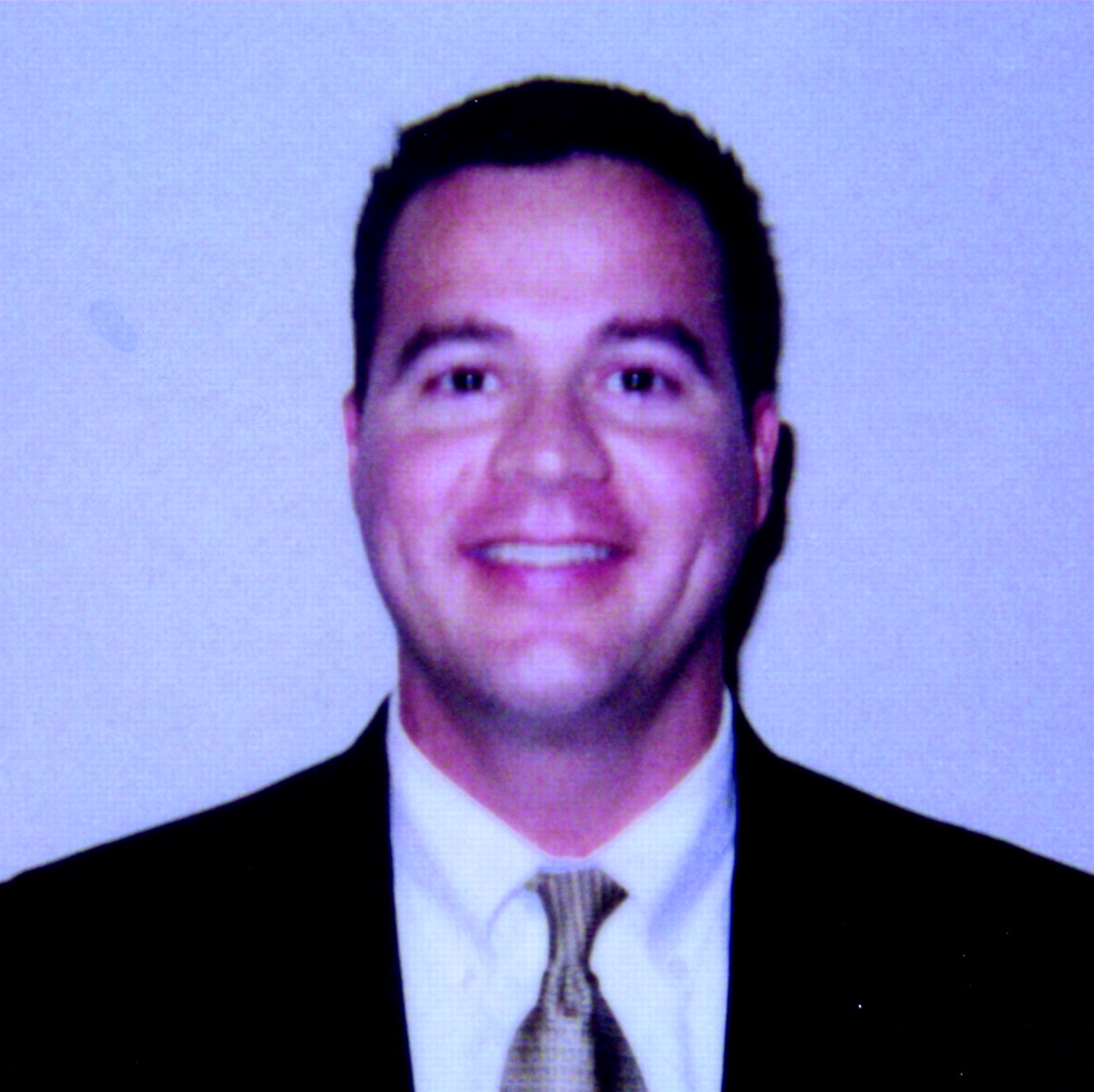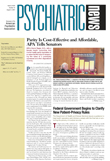For the last six months, two U.S. senators, Kent Conrad (D-N.D.) and Arlen Specter (R-Pa.), had a unique resource at their disposal. As they crafted legislation on a variety of health-related issues, they could call on the expertise of two young psychiatrists who were working in their offices.
John Kraus, M.D., Ph.D., who worked for Conrad, and Adam Wooten, D.O., who was on the staff of the Senate Veterans Affairs Committee, which Specter chaired until last month, were the American Psychiatric Foundation’s 2001 Daniel X. Freedman Congressional Fellows.
Now in its seventh year, the Freedman Fellowship pays the living expenses for two senior psychiatry residents interested in public policy issues to work in the office of a member of Congress or on a committee to which the member is assigned. The American Psychiatric Foundation and Eli Lilly and Company provide the fellowship’s funding.
Wooten, who called his Capitol Hill tenure “the experience of a lifetime,” was the only physician on the Veterans Affairs Committee. He was able to conduct a study of access to mental health care at the VA’s network of primary care clinics, he said, and helped prepare the committee’s annual budget request for the VA, most of which is earmarked for health care.
Because he was on the Hill when a new administration was taking over, Wooten also had a rare opportunity to contribute to Senate hearings on the cabinet and subcabinet nominees whom President George W. Bush named to the head the Department of Veterans Affairs. He was asked to prepare questions on health care issues that Specter posed to the nominees during their appointment hearings.
Wooten, who just completed his psychiatry residency at the University of Kentucky, noted that he was also able to act as the committee’s medical consultant when members reviewed bills on such topics as Gulf War syndrome, treatment of hepatitis C, and, of course, mental health issues.
Kraus spent a substantial portion of his Senate time working on several issues related to health care in rural areas, reflecting the large rural population in Conrad’s home state of North Dakota. He has offered his expertise on legislation to restructure Medicare and Medicaid reimbursement for emergency medical services in rural areas, he told Psychiatric News. He also helped develop a grant program to train and retain EMS workers in those areas.
In addition Kraus worked on antistigma issues and demonstration projects in which telepsychiatry is used to reach special populations, such as children and the elderly, for whom mental health care may be difficult to access. These concerns led Conrad to sponsor the Rural Mental Health Accessibility Act of 2001 (S 859) in March.
Kraus, a resident at the University of North Carolina in Chapel Hill, said that he also worked on legislation to achieve “more equitable treatment of hospitals in rural areas” under Medicare prospective payment schedules.
Kraus and Wooten came away from their Capitol Hill experience with somewhat different views of the major players and their motivations.
Kraus emphasized how carefully members and staff weigh the views of constituents, professional organizations, and lobbyists before making a decision and noted that at least in his experience “consensus and bipartisanship were always sought.” He added that both congressional staff and elected members “have a genuine goal to create legislation that is based on sound policy and that will have a meaningful, positive impact on constituents.”
While Wooten was also impressed by the amount of bipartisanship that often does appear in Congress, he pointed out that there is certainly “an element of looking out for one’s own interests,” and many “decisions are made based on re-election concerns” rather than on what elements would make the best possible piece of legislation. He too noted that “advocacy groups, letters, phone calls,” and other ways constituents register their opinions “are listened to and are a factor in the [legislative] process.”
Kraus said he is leaving the Hill with “less cynicism about how government works.”
Both psychiatrists had nothing but praise for how well they were accepted by and integrated into the congressional staffs on which they worked.
Wooten labeled the work environment “fantastic.” He said that in terms of how people who are not permanent staff members are treated, “in most offices it makes no difference whether you are a fellow or full-time professional staffer. Most people respect one another, and it has been easy to bond with these people in the short time I have been here.” Kraus described a similar experience, stating that he was “treated exactly like any other staffer. . . . Staff at all levels were helpful and friendly.”
The staff in Conrad’s office made appropriate use of his medical knowledge, Kraus added. “I had the opportunity to educate staffers about what psychiatrists do and how they are trained. I was readily available to answer general medical questions to help in responding to constituents’ mail. . . and in drafting mental health legislation.”
Wooten was concerned that many offices that have an impact on health-related legislation have no medical advisor on staff, which is reflected in the bills they produce.
Wooten, who was the Kentucky Psychiatric Association’s resident legislative representative prior to his fellowship, also found the portrayal of senators as aloof and imperious to be a myth. He was impressed, he explained, by how “accessible” the senators turned out to be, which was not his expectation before he began his fellowship. “Often you can stop them in the hall and ask a question. They are more than happy to have a brief discussion with you,” he said.
Both credited APA’s government relations staff with helping them arrange their congressional tenures.
Wooten advised future Freedman fellows to “come with a lot of energy and willingness to get involved with diverse projects. If you do,” he emphasized, “you will leave with the experience of a lifetime.” And Kraus urged fellowship applicants to be aware “that the fellowship is a job, not merely an opportunity for you to observe the process. You will be, and are expected to be, an active participant.” He also pointed out that fellows will, “believe it or not, have a lot of fun at the same time” they are working hard and putting in long hours.
With the conclusion of his fellowship last month, Kraus was going to become an inpatient attending at Dorothea Dix Hospital in Raleigh, N.C., and a clinical assistant professor of psychiatry at the University of North Carolina. Wooten was heading to Cleveland to begin a forensic psychiatry fellowship at Case Western Reserve University. ▪


